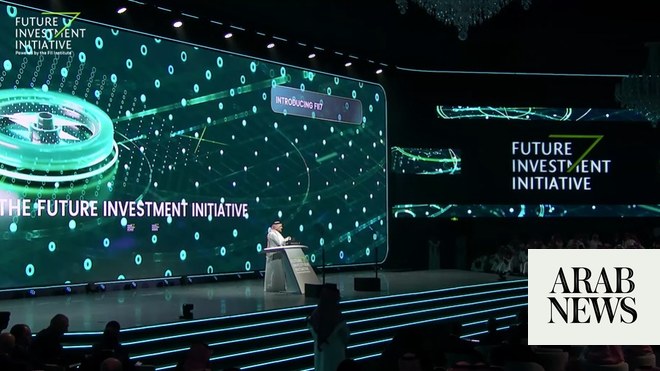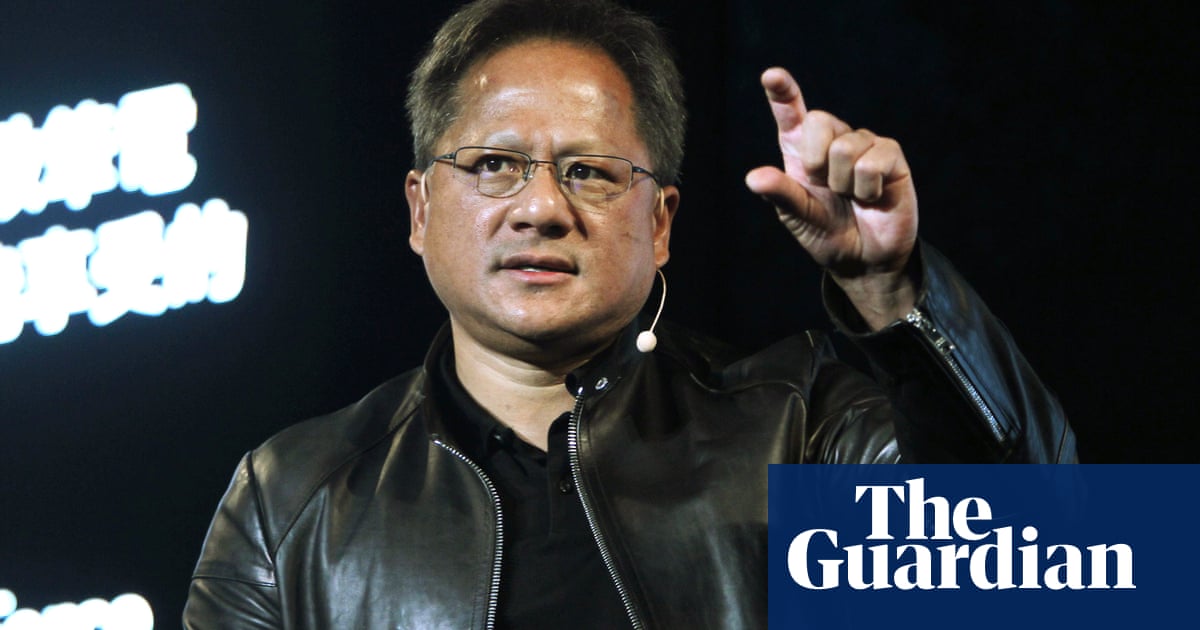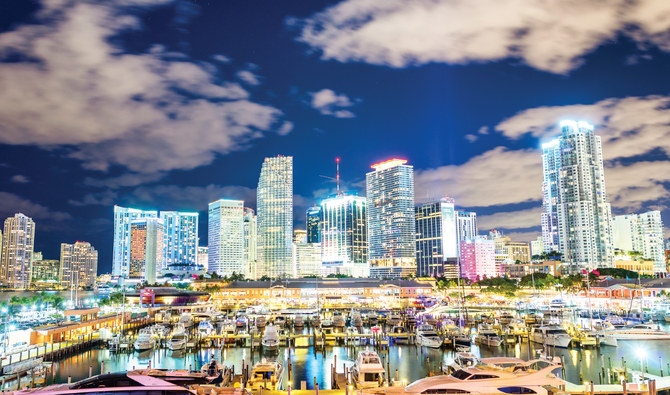
RIYADH: Artificial intelligence can create a more inclusive society and steer the world toward a more sustainable development model, according to Public Investment Fund Gov. Yasir Al-Rumayyan.
Speaking at the Future Investment Initiative in Riyadh, Al-Rumayyan, who is also the chairman of the FII Institute, said that AI has all the potential to accelerate global trade and investments.
“If harnessed for good, AI has the power to create a more inclusive society. To make this happen, global collaboration is needed along with internationally aligned regulations and governance,” he said.
The FII Institute chairman was confident of accelerating growth and productivity despite the inflationary climate.
He added: “As AI advances, it will accelerate global trade in numerous ways. It is predicted that 70 percent of companies will adopt at least one type of AI by 2030.”
According to Al-Rumayyan, the widespread adoption of AI and machine learning demands vast energy consumption, and it is very critical to balance the carbon emissions as the world embarks on this journey.
“The daily energy consumption to support running Chat GPT is estimated at 564 megawatt-hours, which is equivalent to the energy consumed by more than 26,000 American homes in a year,” he said.
Al-Rumayyan, who is also the chairman of Saudi Arabian Oil Co., noted that a data-driven approach is essential to reduce the carbon footprint associated with the widespread use of AI.
Saudi Aramco has implemented several programs to combat emissions, including the Archie Initiative — a program to enhance greenhouse gas emissions estimates within the energy supply chain.
Al-Rumayyan added that Saudi Arabia is leading the way in developing various solutions to combat the biggest climate challenges the world is facing.
He further noted that the world is facing turbulent economic conditions, as central banks all around the globe have tightened their monetary policies to slow down inflation, and this rise in interest rate has been the fastest since the early 1980s.
“Governments and private sectors cannot sustain the same level of spending, lending and investment as they did in the past. Priorities should be made, and the interests in innovation and technology should be at the forefront to accelerate the change,” he said.
Talking about the initiatives of the PIF, Al-Rumayyan said that the fund has focused on 13 sectors to develop and diversify the Kingdom’s economy and added that the wealth fund has created 90 companies and has created 560,000 jobs until now.
“Our world requires global solutions that outpace our collective challenges. So, in every corner of the world, humanity needs to find common ground,” Al-Rumayyan said.
On his part, FII Institute CEO Richard Attias said that the world should embrace diversity in all its forms to ensure a better future.
“As we move forward, we must try to create societies that embrace diversity in all its forms. Inclusion is not merely a matter of fairness. It is a recognition of the richness that different perspectives and backgrounds bring to our community,” said Attias.
The CEO further pointed out the need for an ethical framework and regulations as advanced technologies have become part of our daily lives.
“As we grapple with ethical dilemmas posed by emerging technologies like artificial intelligence and genetic engineering, it becomes imperative to establish a robust ethical framework that saves human rights, privacy and dignity,” he said.
Attias added: “The values of transparency and accountability will be crucial in answering that these technologies are being harnessed for the benefit of all.”
Speaking ahead of the event, Attias revealed that the total value of investments made through agreements, contracts and deals during the FII since its launch in 2017 amounted to SR120 billion.
During the event, World Bank Group President Ajay Banga said that geopolitical tensions threaten the global economy.
“There is so much going on in the world and geopolitics in the wars that you’re seeing and what just happened recently in Israel and Gaza. At the end of the day, when you put all this together, I think the impact on economic development is even more serious,” said Banga.
He also urged private sector firms to step into developing countries to solve the issues associated with investments in the renewable energy sector, saying that $1 trillion is needed in this regard,
“There is not enough money in government coffers, or even in the multilateral development banks. We need to involve the private sector with their capital,” added Banga.











